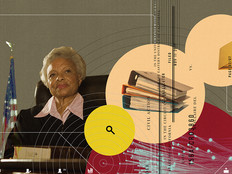The FCC Voted to Preempt State Broadband Laws. Now What?
The Federal Communications Commission’s ruling on community broadband last week preempts restrictive laws in North Carolina and Tennessee, which is a big win for municipal providers in those states.
But the debate over local governments providing Internet services to their residents is far from over.
Rep. Marsha Blackburn, R-Tenn., and Sen. Thom Tillis, R-N.C., introduced legislation last week that would stop the FCC from overriding state and local broadband laws. Specifically, the bill would amend the 1996 Telecommunications Act to make clear that the FCC is not authorized to preempt such laws.
Tennessee Gov. Bill Haslam said he will explore whether to appeal the FCC’s decision, according to the Chattanooga Times Free Press.
The FCC order preempting Tennessee and North Carolina state laws had not been made public. The order will take effect immediately upon release, explained FCC spokesman Mark Wigfield. “Once it is released, parties can read the details of the order and decide whether to challenge or not,” he said.
State attorneys general from Tennessee and North Carolina, broadband carriers and the National Conference of State Legislatures are among the likely candidates to appeal the FCC’s decision, said StateTech must-read IT blogger Christopher Mitchell, director of the Community Broadband Networks Initiative at the Institute for Local Self-Reliance.
“At some point in coming days [or] weeks, the decision will be printed in the Federal Register, and, at that point, Wilson and Chattanooga will be able to expand as will other communities in those two states,” Mitchell added. “And we will expect an appeal to be filed shortly thereafter.”
FCC Commissioners Express Opposing Views
Chattanooga far outpaces the national average for upload and download speeds. A large telecommunications provider doesn’t provide the service, but rather EPB (formerly the Electric Power Board), a nonprofit agency of the city of Chattanooga. Therein lies the problem.
The FCC was not unanimous in its decision. “It is not the government’s role to offer services instead of, or in competition with, private actors,” Commissioner Michael O’Rielly said in his dissenting statement about the FCC preempting state law.
Commissioner Ajit Pai went even further, calling the decision odd and unlawful and adding that it usurps state sovereignty and disrupts the balance of power between federal and state governments.
“I do not believe this agency has the legal power to preempt; I, therefore, dissent.” Pai said.
For now, Tennessee’s EPB cannot extend Internet services to residents outside of its current coverage area. In Wilson, state law prevents cities from offering broadband below cost, The News Observer reported.
FCC Chairman Tom Wheeler said the commission’s actions will remove the red tape and shed light on the issues.
“There are a few irrefutable truths about broadband. One is you can’t say that you’re for broadband and then turn around and endorse limits on who can offer it,” Wheeler said. “You can’t say you’re for competition but deny local elected officials the right to offer competitive choices.”









